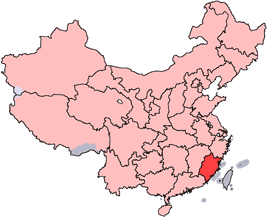Ruan zhi
Ruan Zhi (Thai: เรือนชา
), also known as Qing Xin (Chinese: 青心 ), is a cultivar of Camellia sinensis var. sinensis, commonly known as the tea plant. Originating in Thailand, Ruan Zhi is highly regarded for its role in producing Oolong tea, a type of Chinese tea that is partially oxidized. This cultivar is particularly favored in the production of high-quality oolong teas in both Thailand and Taiwan, where it is often referred to as Taiwan Tea No. 17.
Characteristics[edit | edit source]
Ruan Zhi is known for its distinctive aroma and flavor profile, which can vary significantly depending on the level of oxidation and processing methods used. The tea leaves of the Ruan Zhi plant are typically dark green, with a somewhat glossy appearance and a slightly curled edge, characteristic of many oolong teas. When processed into tea, Ruan Zhi yields a light golden to amber-colored brew, with a floral and mildly sweet taste that is highly appreciated among tea connoisseurs.
Cultivation[edit | edit source]
The cultivation of Ruan Zhi requires specific environmental conditions, including high altitude, mild temperatures, and abundant mist. These conditions are commonly found in the mountainous regions of Thailand and Taiwan, making these areas ideal for producing high-quality Ruan Zhi tea. The tea plants are usually grown in small plots, where they can be carefully tended to ensure optimal growth and tea leaf quality.
Processing[edit | edit source]
The processing of Ruan Zhi tea involves several steps, including withering, rolling, partial oxidation, and drying. The level of oxidation is carefully controlled to achieve the desired flavor profile, ranging from green and floral to more robust and woody notes. This versatility makes Ruan Zhi a popular choice among tea producers looking to create unique oolong tea blends.
Cultural Significance[edit | edit source]
In both Thailand and Taiwan, Ruan Zhi tea holds a place of cultural importance. It is often served during special occasions and ceremonies, symbolizing hospitality and respect. The tea's unique flavor and aroma are celebrated, and its production is seen as an art form, passed down through generations of tea farmers and producers.
See Also[edit | edit source]
Search WikiMD
Ad.Tired of being Overweight? Try W8MD's physician weight loss program.
Semaglutide (Ozempic / Wegovy and Tirzepatide (Mounjaro / Zepbound) available.
Advertise on WikiMD
|
WikiMD's Wellness Encyclopedia |
| Let Food Be Thy Medicine Medicine Thy Food - Hippocrates |
Translate this page: - East Asian
中文,
日本,
한국어,
South Asian
हिन्दी,
தமிழ்,
తెలుగు,
Urdu,
ಕನ್ನಡ,
Southeast Asian
Indonesian,
Vietnamese,
Thai,
မြန်မာဘာသာ,
বাংলা
European
español,
Deutsch,
français,
Greek,
português do Brasil,
polski,
română,
русский,
Nederlands,
norsk,
svenska,
suomi,
Italian
Middle Eastern & African
عربى,
Turkish,
Persian,
Hebrew,
Afrikaans,
isiZulu,
Kiswahili,
Other
Bulgarian,
Hungarian,
Czech,
Swedish,
മലയാളം,
मराठी,
ਪੰਜਾਬੀ,
ગુજરાતી,
Portuguese,
Ukrainian
Medical Disclaimer: WikiMD is not a substitute for professional medical advice. The information on WikiMD is provided as an information resource only, may be incorrect, outdated or misleading, and is not to be used or relied on for any diagnostic or treatment purposes. Please consult your health care provider before making any healthcare decisions or for guidance about a specific medical condition. WikiMD expressly disclaims responsibility, and shall have no liability, for any damages, loss, injury, or liability whatsoever suffered as a result of your reliance on the information contained in this site. By visiting this site you agree to the foregoing terms and conditions, which may from time to time be changed or supplemented by WikiMD. If you do not agree to the foregoing terms and conditions, you should not enter or use this site. See full disclaimer.
Credits:Most images are courtesy of Wikimedia commons, and templates Wikipedia, licensed under CC BY SA or similar.
Contributors: Prab R. Tumpati, MD

